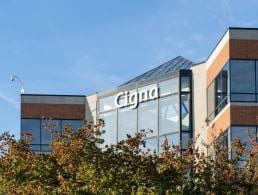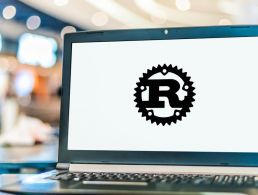You could argue that Martin Murphy (pictured), managing director of HP Ireland, has one of the most interesting jobs in this country. He presided over the marriage of the local operations of Hewlett-Packard (HP) and Compaq in Ireland during one of the biggest mergers in global business history. He also oversaw the signing of the biggest outsourcing contract to come to these shores, that of HP and Bank of Ireland.
From talking to Murphy, you can guess his handling of these major challenges has been akin to that of a sportsman or team captain preparing for a big game or contest of some kind – the goal is to win, and winning is something he does for a living. “I don’t have any specific companies that I admire most, but my role models are sports people. We are predominantly a sales driven company, with the focus on competing and winning. I think sports people go out and do that and in high pressure areas, they’re the people I admire: top golfers, top soccer and rugby players, anybody who invests personal and competitive spirit in what they do. They’re winning for a living and that’s what it’s all about: to be on top of your game every single day.”
Murphy’s challenges for the months and years ahead will involve presiding over a restructured HP sales organisation, ensuring the gradual adoption of the principles of outsourcing in Ireland as well as deploying HP’s technology vision of the adaptive enterprise as well as Linux and other open source technologies.
Murphy, who was appointed general manager of HP in June 2000, is an 18-year veteran of HP, having joined the company’s consulting organisation in 1986 as a member of a small team. In 1995 he was made sales director of the company in Ireland and presided over year-on-year double digit growth across all product lines in both the North and South of Ireland during the 90s. The double-digit sales growth coincided with massive growth for HP in Ireland, which now employs over 2,000 people across manufacturing, R&D, software and financial services roles, not to mention sales.
Explaining the company’s new business structure, which pushes sales to the front end, he said: “The logic is to set the company up for more success. We had a successful formula since the merger with Compaq but as with any organisation the time came to review that formula. That’s a corporate change. Ireland continues to be an attractive location for HP and we have invested very heavily in the company. That was underlined by CEO Carly Fiorina’s recent visit to Ireland.”
Presiding over the local organisation of one of the world’s biggest technology companies, which involves a complex array of technologies ranging from digital cameras and printers to high end services, can’t be easy, particularly when it involves promoting HP’s enterprise vision. Every one of the large IT players, including IBM, Oracle and HP itself, have their own vision of where new concepts such as grid computing will bring businesses. HP’s own vision, the Adaptive Enterprise, is about the best use of technology in a business, believes Murphy.
“The Adaptive Enterprise is both the name of HP’s enterprise strategy and a vision for customers to aspire to. It also describes how HP helps CIOs and their companies to embrace change and turn it into a business opportunity.
“An ‘adaptive enterprise’ is an organisation that is agile and can respond in real time to the changes that affect their business. One of the reasons an enterprise can respond in real time is that their business and IT are synchronised to capitalise on change. When an enterprise is adaptive, the supply of its computing resources is always dynamically linked to meet the business demands on them – so supply always meets demand.
“The adaptive enterprise is about the best use of technology to suit customer needs, an array of technologies and new ways of computing (i.e grid and utility computing) can be incorporated into a company’s AE strategy if appropriate,” Murphy explains.
HP has been a strong supporter of Linux and is the first major IT vendor to allow the open source movement to sell their open source software solutions on HP’s standards-based servers. Explaining the rationale behind this, Murphy says: “HP is committed to the Linux route. That announcement builds on our leading role in Linux servers and in 2003 we generated US$2.5bn dollars in Linux-related sales. We are the world’s leading Linux revenue generator at the moment and this is a push into that marketplace.”
HP were involved in one of Ireland’s largest outsourcing plays – that of Bank of Ireland (BoI). He believes that outsourcing makes sense for Irish businesses, large and small, in the present economy. “I think that the BoI project was a defining moment in the Irish IT marketplace. Two years ago, the whole area was a market that experienced a lot of questioning during the downturn. There were lots of empty data centres around Dublin. We always believed that outsourcing was going to be a market trend. We saw the BoI deal as a defining moment in the Irish marketplace, the largest contract of its size ever awarded. From our perspective, HP has almost created the outsourcing market in Ireland – before the BoI deal it was not something companies were looking at. Companies are trying to lower costs, increase revenues and gain competitive strength in market. Outsourcing lets them focus on their core competencies and really allow companies with greater expertise to step in and add value.”
His best advice to Irish companies wishing to optimise their IT spend right now, he says, is to invest in IT with a view to adding to the bottom line rather than detracting from it. “I think right now the link between business value and IT investment is probably at its greatest, and all companies are looking to gain a competitive edge in the market. I advise companies to invest in areas where IT can generate new revenue streams, and consolidate financial operations.”
IT players the world over seem to be reporting consistently good business results. HP itself recently reported a 34pc increase in profits for the second quarter of US$884m, compared with US$659m a year ago, and improved its outlook for the second half of this year. But Murphy is reluctant to claim the industry is out of the woods yet. “I think there’s a definite sense of optimism out there. All companies in this sector have had a very tough couple of years. From HP’s perspective, there is a sense of optimism, but we are still extremely cautious and can’t afford to take anything for granted. We just have to get out there and compete and win for every customer and project we are working on. It’s not a mini-bubble, just a gradual sense of optimism.”
In his role as one of Ireland’s largest technology employers, Murphy has a social role as well as a business role and participates in the debates around the issues of what drives not only a technology industry, but a knowledge society. For example, he is also a member of several key advisory boards, including the recently appointed Government Broadband Advisory Board, the Digital Council and the Chambers of Commerce of Ireland.
As a result, Murphy has a keen insight into what needs to be done in terms of helping Ireland to keep its edge in the knowledge economy. He says: “To keep Ireland at the forefront of industry, we need a mindset in Government to not just stay in the game but to win the game.
“The Government needs to invest heavily in the use of IT in education from primary up to university level. That will be one of the critical factors: starting in primary and working up the system, with students having all of the skills and completely aware of technology.”
By John Kennedy




